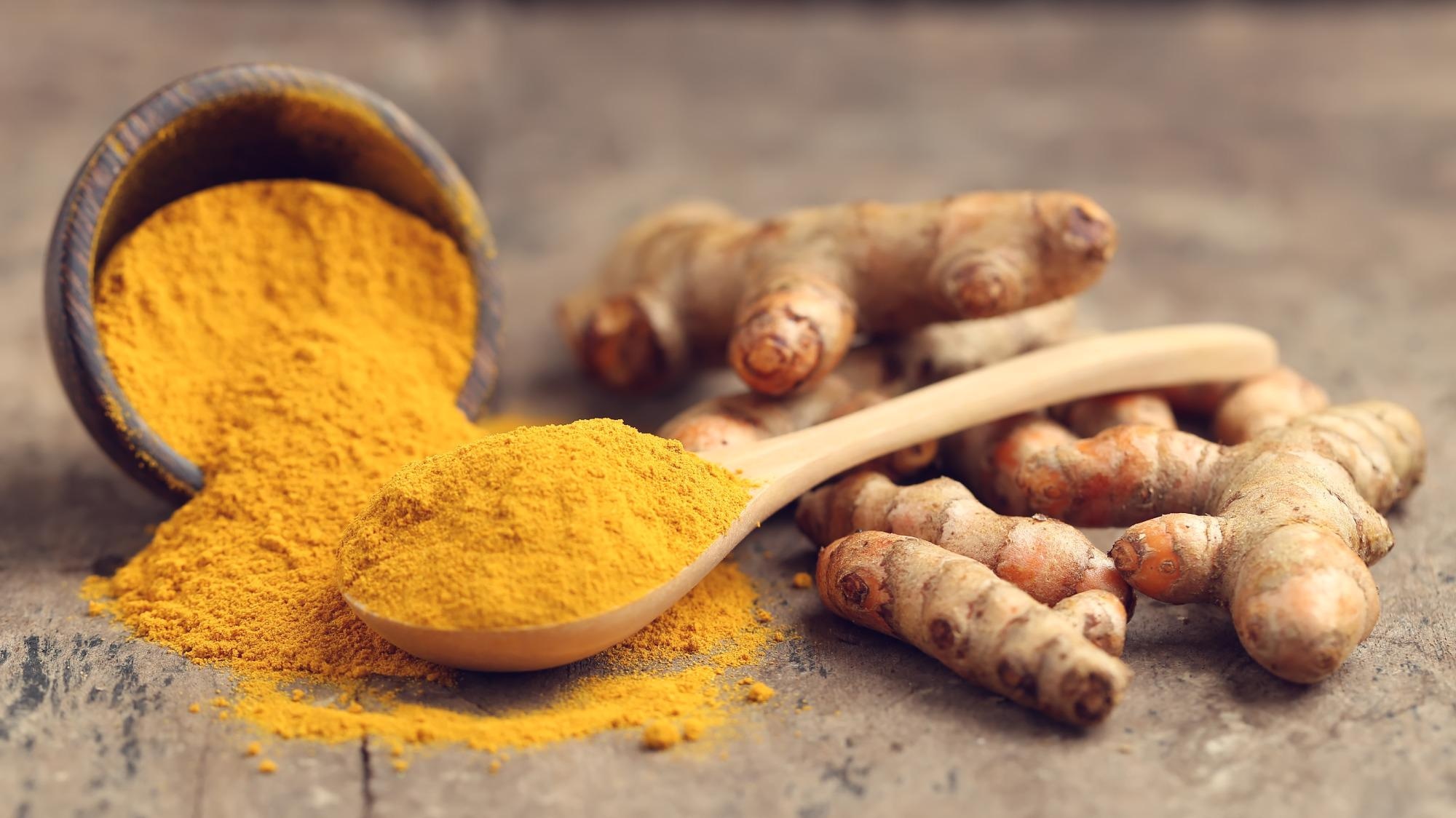An extract from the commonly used spice, turmeric could pave the way to safer and better fuel cells.

Image Credit: Shutterstock.com/tarapong srichaiyos
Scientists at the Clemson Nanomaterials Institute (CNI) and their partners from the Sri Sathya Sai Institute of Higher Learning (SSSIHL) in India found a unique method to integrate curcumin, a component in turmeric, and gold nanoparticles to make an electrode that needs 100 times less energy to change ethanol into electricity in an efficient manner.
While further testing still needs to be conducted, the researchers believe that this discovery could pave the way for substituting hydrogen as a fuel cell feedstock.
Of all the catalysts for alcohol oxidation in alkaline medium, the one we prepared is the best so far.
Apparao Rao, Founding Director and the R. A. Bowen Professor of Physics, College of Science, Clemson Nanomaterials Institute, Clemson University
Fuel cells produce electricity via a chemical reaction rather than combustion. They are used to provide energy for vehicles, portable electronic devices, buildings and backup power units.
Hydrogen fuel cells are extremely efficient and do not create greenhouse gases. While hydrogen is the universe’s most prevalent chemical element, it has to be extracted from substances such as fossil fuels and natural gas because it forms naturally on Earth only in compound form with other elements in gases, liquids or solids. The essential extraction contributes to the environmental impact and cost of hydrogen fuel cells.
Furthermore, the hydrogen added into fuel cells is a compressed gas, causing challenges for transportation and storage. Ethanol, an alcohol extracted from corn or other agro-based feeds, is easier and safer to ship than hydrogen as it is a liquid.
To make it a commercial product where we can fill our tanks with ethanol, the electrodes have to be highly efficient. At the same time, we don’t want very expensive electrodes or synthetic polymeric substrates that are not eco-friendly because that defeats the whole purpose. We wanted to look at something green for the fuel cell generation process and making the fuel cell itself.
Lakshman Ventrapragada, Study Researcher and Former Research Assistant, CNI
Lakshman Ventrapragada is a former student of Rao and had worked as a research assistant at the CNI. He is an alumnus of SSSIHL.
The scientists concentrated on the anode of the fuel cell, where oxidization of the ethanol or another feed source takes place.
Platinum is extensively used in fuel cells as a catalyst. However, the downside to platinum is that it suffers from poisoning due to reaction intermediates like carbon monoxide, Ventrapragada stated. It is also expensive.
Structural Uniqueness
The scientists employed gold as a catalyst. Rather than using metal-organic frameworks, conducting polymers or other complex materials to place the gold on the surface of the electrode, the scientists used curcumin due to its structural exclusivity.
Curcumin is used to embellish the gold nanoparticles to stabilize them, developing a porous network encompassing the nanoparticles. The scientists placed the curcumin gold nanoparticle on the electrode’s surface at a 100 times lower electric current than in earlier studies.
Without the curcumin coating, the gold nanoparticles agglomerate, reducing the surface area subjected to the chemical reaction, Ventrapragada explained.
Without this curcumin coating, the performance is poor. We need this coating to stabilize and create a porous environment around the nanoparticles, and then they do a super job with alcohol oxidation. There’s a big push in the industry for alcohol oxidation. This discovery is an excellent enabler for that.
Apparao Rao, Founding Director and the R. A. Bowen Professor of Physics, College of Science, Clemson Nanomaterials Institute, Clemson University
“The next step is to scale the process up and work with an industrial collaborator who can actually make the fuel cells and build stacks of fuel cells for the real application,” Apparao Rao continued.
Broader Implications
But the study could have broader implications than enhanced fuel cells. The electrode’s exclusive features could be applied in future applications in supercapacitors, sensors and more, Ventrapragada stated.
In partnership with the SSSIHL research team, Rao’s team is experimenting with the electrode as a sensor that could help discover variations in the dopamine level. Dopamine has been associated with disorders such as attention deficit hyperactivity disorder and Parkinson’s disease.
When the researchers analyzed urine samples taken from healthy volunteers, they could quantify dopamine to the permitted clinical range with this electrode using an economical technique compared to common ones used currently, Rao said.
“In the beginning stages of the project, we did not imagine other applications that gold-coated curcumin could support. However, before the end of the alcohol oxidation experiments, we were fairly confident that other applications are possible,” Ventrapragada said.
Although we don’t have a complete understanding of what’s happening at the atomic level, we know for sure that curcumin is stabilizing the gold nanoparticles in a way that it can lend itself to other applications.
Lakshman Ventrapragada, Study Researcher and Former Research Assistant, CNI
The findings of the study have been reported in the journal Nano Energy.
Ventrapragada planned the research during his thesis work in Rao’s CNI lab. After Ventraprada’s graduation, the electrode was defined and tested by the SSSIHL research team from India, which includes J.K. Kiran Kumar, Sai Prasad Nayak, and Sai Sathish Ramamurthy.
Journal Reference:
Nayak, S. P., et al. (2022) Green synthesis of a novel porous gold-curcumin nanocomposite for super-efficient alcohol oxidation. Nano Energy. doi.org/10.1016/j.nanoen.2022.106966.